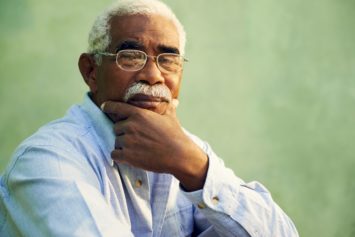A fascinating study on African-Americans and vitamin D reveals a surprising answer to a long-held question: Since blood tests show that most African- Americans are vitamin D deficient, which is linked to weak bones, why do they have the best bone health in the U.S.?
The answer turns out to be in the testing used to determine vitamin D deficiency, according to a new study published in the current New England Journal of Medicine, the country’s most prestigious health journal.
The study revealed that most African-Americans have an abundance of the form of vitamin D that their cells can readily use, which is the form that really counts.
By observing 2,085 Black and white Baltimore residents, Dr. Ravi Thadhani, a professor at Massachusetts General Hospital and lead author of the study, and his colleagues determined that the standard test for vitamin-D deficiency that focuses on a form of the vitamin called 25-hydroxyvitamin D is not sufficient, because for Blacks it doesn’t indicate how much bioavailable vitamin D they have. The 25-hydroxyvitamin D is the form that makes up most of the vitamin D circulating in our blood.
“The population in the United States with the best bone health happens to be the African-American population,” says Thadhani. “But almost 80 percent of these individuals are defined as having vitamin D deficiency. This was perplexing.”
The 25-hydroxy form is tightly bound to a protein, so bone cells, immune cells and other tissues that need vitamin D have a difficult time accessing it. The kidneys have to convert it into a form called 1,25-dihydroxyvitamin D. In testing whites, determining how much 25-hydroxyvitamin D that is in the blood is a pretty good proxy for how much of the bioavailable vitamin they have. But that doesn’t work for Blacks because Blacks have only a quarter to one-third as much of the binding protein, according to Thadhani.
This means the standard test for the 25-hydroxy form is misleading and doesn’t give the proper indication of how much of the bioavailable vitamin Blacks have. This also explains why the bones of African- Americans look strong even when the usual blood tests say they shouldn’t.
“The conclusion from this study is that just because your total levels are low, it doesn’t mean we need to replace vitamin D” using supplements, Thadhani says.
Geography can explain the vitamin D difference in the races. The earliest humans lived near the equator in Africa, where sunlight was plentiful and intense year-round, giving their bodies access to plenty of vitamin D. But as humans began to move farther away from the equator, their bodies began to store up reserves of vitamin D because they weren’t getting what they needed from the sunlight.
“Everyone who came out of Africa had the ancestral genotype associated with lower vitamin D-binding proteins,” Thadhani says. “When humans moved to areas with less sunlight, a different genotype evolved. The further north they went, the more people needed reserves of vitamin D. So D-binding protein levels went up.”
As a result of the study, Thadhani says doctors should stop prescribing vitamin D supplements for Black patients until they do other tests to determine whether they are really deficient. Those tests include checking their blood levels of calcium, bone density tests and parathyroid hormone levels.
While there is currently no approved test for the bioavailable 1,25-dihydroxyvitamin D, Thadhani and his colleagues are working on one and have filed for a patent.



